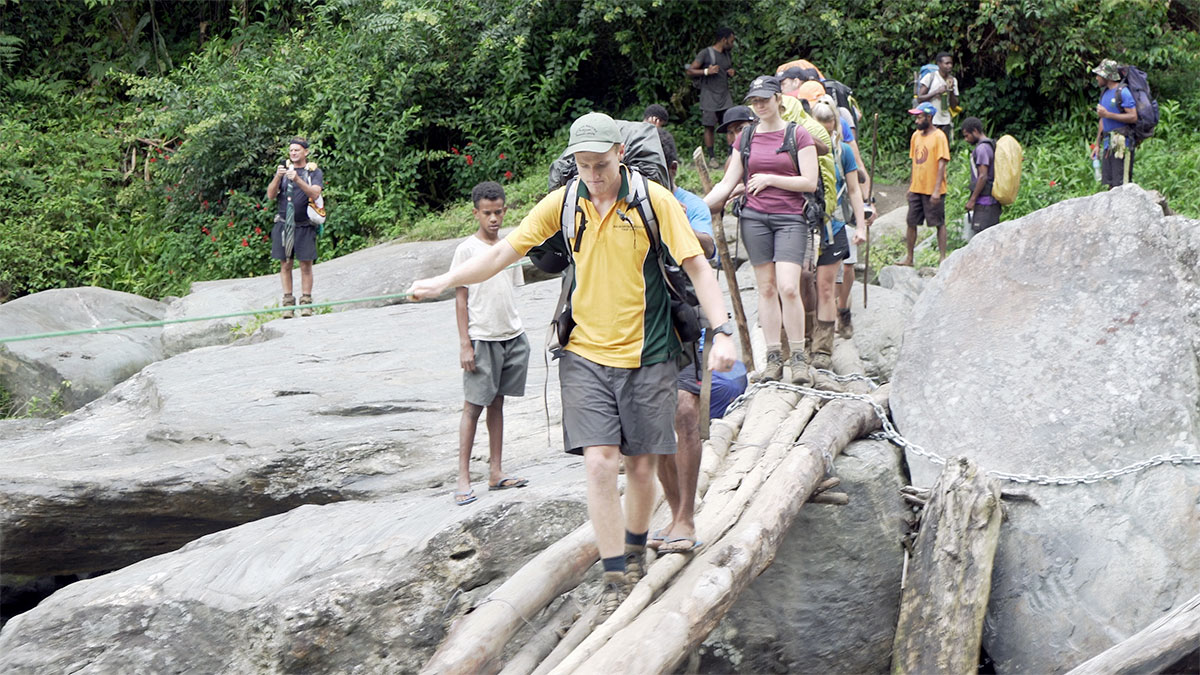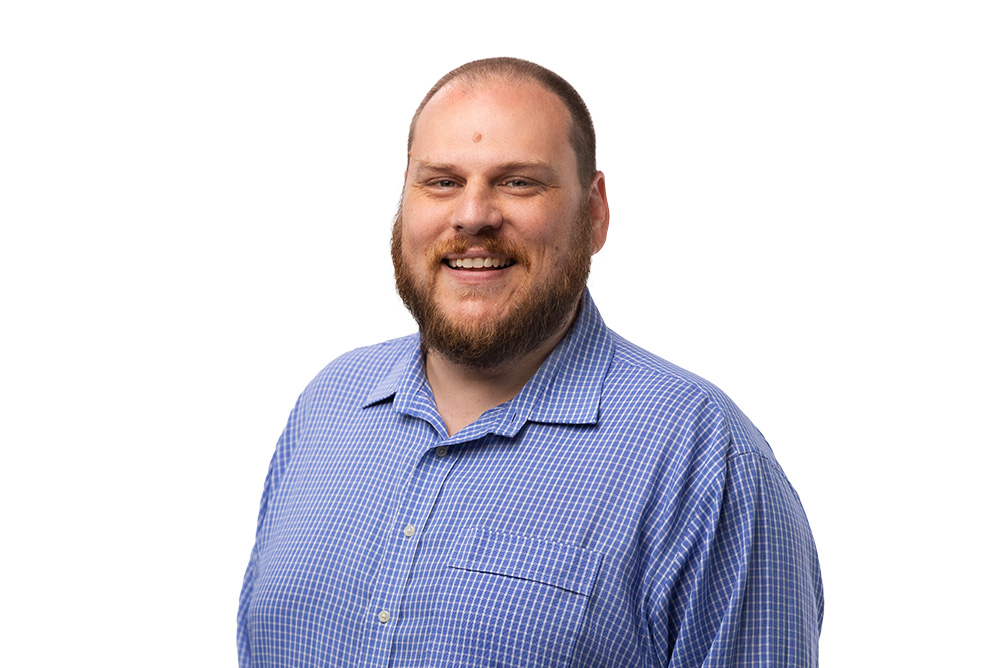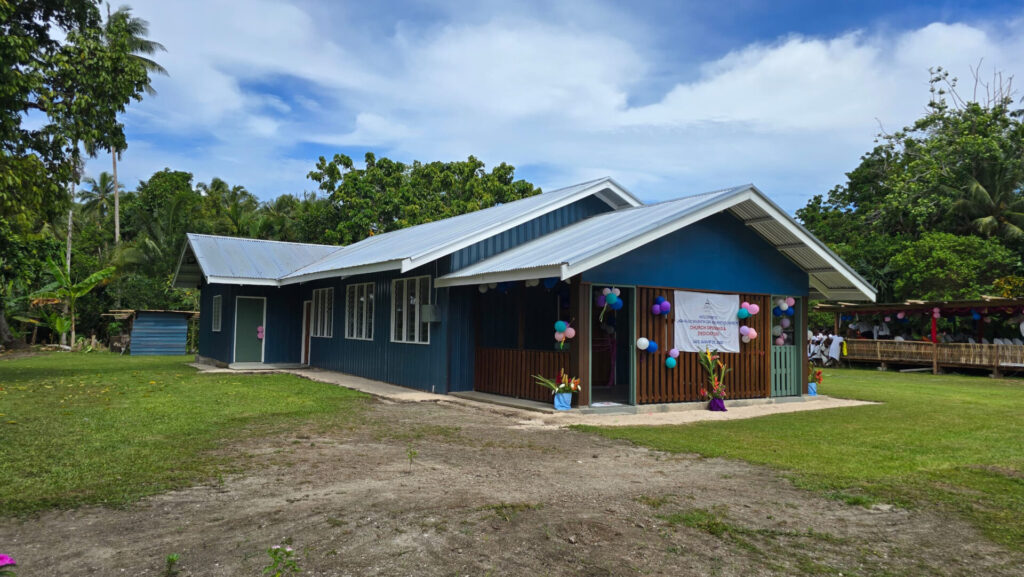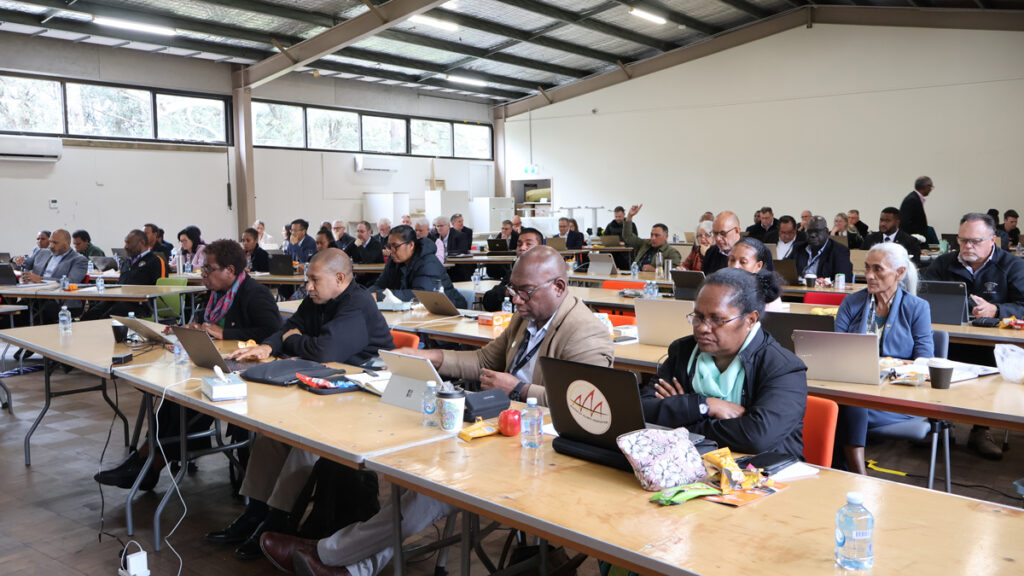We sat in a cathedral of mist on the large, clear hilltop. The world had narrowed to just that place. Kagi—it’s not a place most people have heard of, let alone visited, but it was our haven in the clouds, a paradise for weary, footsore travellers, a very literal Sabbath rest.
We camped just behind the church on that blessed hilltop clearing. Villagers from Maraba and Daoi also stayed in Kagi for this high day of stories, singing and sermons.
Friday afternoon had seen us stagger into camp, only to have our spirits lifted by the warm welcome we’d received. The feeling in camp was light as we began to set up and prepare for Sabbath. Trekkers and porters played footy, laughing and sliding in the afternoon rain that rolled in with the mist, displacing the warm sunshine and setting in for a cold damp night.
Kagi village was a high point in the trip literally (while not the highest altitude we reached) and metaphorically.
The group of around 60 trekkers and porters had walked for five days to reach that point, slogging through clinging mud, heavy rain, slippery slopes and equatorial humidity. But why?
It all started a few years back. Pastor Glenn Townend, president of the South Pacific Division (SPD), and his son Travis (a pastor and chaplain in Adelaide, SA) planned to hike Kokoda together. The plan expanded when Pastor Townend’s wife, Pam, picked up their idea.
“When the idea of the Kokoda challenge was birthed, our dream was to raise much-needed funds for the 10,000 Toes Campaign while taking the opportunity to actually look at what diabetes was doing in this remote part of PNG,” said Mrs Townend, who is working with Adventist Health to manage the 10,000 Toes Campaign. “There is no doubt we achieved both those goals, and in reflection, so much more.”
10,000 Toes is tackling the problem of lifestyle disease, especially type 2 diabetes right across the Pacific. Indeed, while each of the 25 participants had a target of $A1000 to raise for the campaign, many in the group far surpassed that with a combined total of $A65,000 being raised. The money was designated to provide early diabetes detection kits and the group got to take part in the health work firsthand, at Manari village, with tests for all the inhabitants.

At each village the group stopped at, Papua New Guinea Union Mission Health director Gad Koito presented a health talk and encouraged the villagers to stick to their walking, their gardening and their healthy diets.
“We discovered that while diabetes has not crept into the Kokoda region like other parts of PNG, there were red flags,” said Mrs Townend, who met the team at the end of the Kokoda Track.
“Items like two-minute noodles, soft drinks and other junk food were readily available in stalls to attract sales from the many trekkers who pass through the villages. So our future training in this region will need to focus on preventative measures rather than the reversal approach we initially thought.”
For the Kokoda campaign, 10,000 Toes partnered with ADRA Connections. Natalie Nawaikalou, ADRA Connections coordinator, and Jimmy Jacobs, from ADRA PNG, provided invaluable support and logistics to the trekkers along the way. Mr Jacobs’ translation skills were both handy and hilarious as he attacked the stories and testimonies with enthusiasm and relish, and often left the audience in stitches.
“For ADRA PNG, this is the first [trip] of its kind, especially partnering with ADRA Connections and the SPD,” said Mr Jacobs. “We are excited about this partnership. 10,000 Toes is one of the most important missions that the Church has. While we continue to preach the gospel, we need to really get down and meet the needs of the people. We are very much excited about this journey and we want to see more happening.”
The group could see their fundraising in action, as they were able to gift four early detection kits to clinics and a hospital along the way.
“I just wanted to say thank you to all of the trekkers who came on Kokoda because they did all the fundraising that makes the 10,000 Toes Campaign possible,” said Paul Rubessa, CEO of ADRA Australia and one of those who completed Kokoda. “And thanks to all the donors who supported the trekkers and gave their hard-earned money to such a great initiative.”

The Kokoda team left Pacific Adventist University very early on Monday morning. The buses were bogged three times on the way to the start of the track, a good indication of the challenges facing the team.
That first morning descending down from Owers Corner, before climbing up towards Imita Ridge, took out three of the trekkers and two porters—such were the slippery, treacherous conditions. Those who remained had to grow closer through the trip. While coming from different backgrounds and life experiences (the youngest trekker was 14, the oldest 67), the group found ways to carry on, through sharing Marmite to walking with the slower ones to encourage them.
A particularly moving part of the trip was the dawn service at Ishiraba. It was pouring with rain on the final morning before descending into Kokoda. It also happened to be PNG’s Remembrance Day and trekkers and porters formed a circle around the memorial and sang the Australian and PNG national anthems and reflected on the love and sacrifice that had been shown there during World War II.

Starting in Central Papua Conference territory, which covers the large villages of Menari, Efogi and Kagi, the group was accompanied for some time by the district director, Pastor Samuel, who is originally from Goroka but now ministers among the Koiari people.
The track finishes in Northern Milne Bay Mission (NMBM), a sister mission to the Western Australian Conference, whose president, Pastor Steve Goods, also walked the track. The trekkers were greeted by NMBM president, Pastor Leonard Sumatau, and a group of Adventists from Kokoda—including the district director whose son was one of the porters for the group—on the ADRA compound, where they stayed the final night. A cultural dance and large celebration greeted the team.
“It was great to meet so many faithful and loyal Seventh-day Adventists who are following in the footsteps of the early missionaries and yet don’t have much contact with the outside world,” said Pastor Townend afterwards. “Their Christian values were evident in their hospitality and demeanour, the singing and worship. That and the amazing rugged beauty of the landscape were the highlights for me.”
The trek is now finished, with memories that will remain for a lifetime, but the work of 10,000 Toes is far from done. “PNG is a large country, not to mention the rest of the South Pacific, which is the focus of our campaign,” said Mrs Townend. “We have now commenced roll-out in Fiji, Solomon Islands and PNG, with talks commencing in Vanuatu. Our aim hasn’t changed—we still have big plans for ‘turning the tide on diabetes’ and it’s happening one step at a time right across the Pacific.”
Read more “thoughts from the track”.







